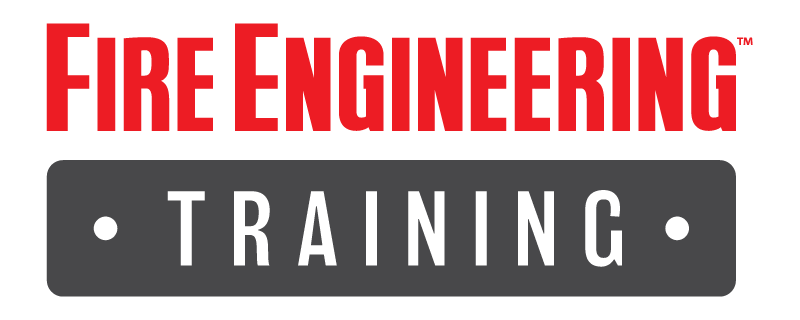Did you know that a coffee nap can be an effective way to recharge? There are also a few other tips to keep in mind when taking a nap. Whether you've had a busy day or just need a quick break, this micro-learning will highlight five things to consider for a successful nap.
Course Type: Microlearning
Course Duration: 5 min.
Taking proactive action towards mental health is a proven means to combat the many mental health disorders that are common among first responders including depression, addiction, anxiety, and post-traumatic stress symptoms. Tragically, when not addressed, the end result of each of these can be suicide. This course will discuss methods to prevent suicide by learning its traceable causes. Rather than focusing on individual risk factors, this course will explain how creating an environment to encourage help-seeking behavior can alter an individual’s trajectory from reaching suicide.
Course Type: Full-length Course
Course Duration: 60
Allergic reactions, including their more severe form, anaphylaxis, represent an exaggerated or hypersensitive response following exposure to any of a number of triggers or allergens, like food, medications, or pollen. Allergic and anaphylactic reactions are typically but not always mediated by the immune system and are most notable for the fact that many other people would not experience any such reaction when exposed to the same triggers. Anaphylaxis represents the more severe and potentially life-threatening form of an allergic reaction. Your ability to recognize and treat allergic reactions can mean the difference between life and death for some patients. In this course, we'll discuss how the immune system may trigger allergic reactions, anaphylaxis recognition and treatment, as well as epinephrine administration.
Course Type: Full-length Course
Course Duration: 60
Allergic reactions, including their more severe form, anaphylaxis, represent an exaggerated or hypersensitive response following exposure to any of a number of triggers or allergens, like food, medications, or pollen. Allergic and anaphylactic reactions are typically but not always mediated by the immune system and are most notable for the fact that many other people would not experience any such reaction when exposed to the same triggers. Anaphylaxis represents the more severe and potentially life-threatening form of an allergic reaction. Your ability to recognize and treat allergic reactions can mean the difference between life and death for some patients. In this course, we'll discuss how the immune system may trigger allergic reactions, anaphylaxis recognition and treatment, as well as epinephrine administration.
Course Type: Full-length Course
Course Duration: 60
Course Type: Full-length Course
Course Duration: 60
Individuals with autism are seven times more likely to interact with first responders than the average citizen. To ...
Course Type: Full-length Course
Course Duration: 150
?Lifting patients onto stretchers for transport is a common occurrence in EMS. Unfortunately, lifts performed improperly can lead to EMS providers getting hurt. In this course, we'll discuss the potential hazards from finding patients in hard to reach locations and the need for utilizing proper lifting techniques to prevent injury.
Course Type: Full-Length Course
Course Duration: 60 min
When you provide first aid, it is important that you help both the victim and yourself. Take this course to find out how to avoid legal liability, prevent disease transmission and determine how and when to move victims. This course will remind you how to assess the scene and the victim as well as how to recognize cardiac incidents, perform CPR, treat choking and put victims in the recovery position. This course will also discuss bleeding control, shock and anaphylaxis, burns and electrical shock, sudden illnesses, as well as poisonings and bites. Additionally, this course will also refresh your memory for initial treatment of brain, spine, chest, abdominal, and pelvic injuries as well as bone, joint, and muscle injuries. Lastly, this course will discuss cold and heat emergencies.
Course Type: Full-length Course
Course Duration: 120 min
As a first-time manager, you likely feel a mixture of excitement and apprehension about your new role. What ...
Course Type: Full-length Course
Course Duration: 60
As a first responder, you may encounter varying types of bloodborne and airborne pathogens. It is necessary to be prepared for these circumstances so that you are better equipped to protect yourself and others and help to stop the spread of potentially dangerous pathogens. This course will discuss bloodborne and airborne pathogens, including the use of personal protective equipment and controlling exposure.
Course Type: Full-length Course
Course Duration: 60 min
What does it mean to have integrity? What role does it play in career advancement and job satisfaction? These questions make up the heart of this course on workplace integrity. As we'll discuss, there are benefits and challenges of maintaining integrity when making difficult workplace decisions. Through real-world examples, you'll see the three forms of workplace integrity in action. You’ll also uncover four steps to align your values and actions to become someone that others trust, admire, and respect.
Course Type: Full-length Course
Course Duration: 60 min
Many of us took courses on writing in elementary school or even high school, however, there are specific ...
Course Type: Full-length Course
Course Duration: 60




